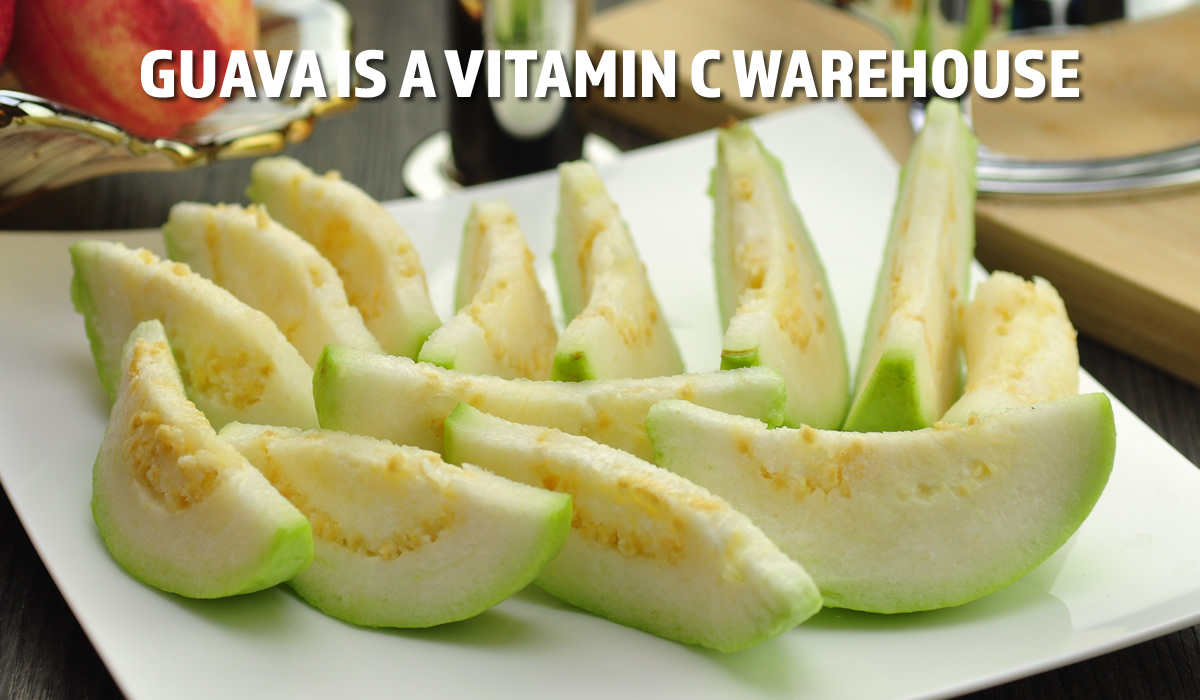Guava
Guava is considered a common man’s fruit and is called the ‘apple of the tropics. Guava has less sugar than most other fruits. Eat the skin and the pulp, it's delicious. Guava also contains lycopene, quercetin and other antioxidants which neutralise free radicals generated in the body, preventing the growth of cancer cells.The main difference between guava trees lies within their fruit, which has flesh that ranges in color from red to white. There are even several varieties of fruit that share the common name guava that are not true guavas at all despite their similar appearance. Guavas have very high vitamin C levels (one fruit is 400mg which is 400%+ RDA.
- Pink and Red flesh: Sometimes referred to as dessert guavas, pink and red fleshed guava varieties produce sweet, intensely fragrant fruit. Another pink-fleshed variety is 'Hong Kong Pink'
- White and Yellow flesh: White or yellow fleshed guavas typically produce mild, acidic fruit. The flesh ranges from creamy white to pale yellow and the skin typically stays green when ripe, although some varieties develop a pinkish blush.

Nutrient packed guavas
Guavas are extremely rich in vitamin C, lycopene and antioxidants that are beneficial for skin. Guavas are also rich in manganese which helps the body to absorb other key nutrients from the food that we eat. Guavas contain folate, a mineral which helps promote fertility.
- Vitamic C: 1 fruit has 400mg of vitamin C (400+% RDA). Vitamin C is a powerful micro-nutrient and crucial antioxidant. It reverses skin aging to reducing cholesterol levels, studies have found that vitamin C benefits many aspects of health, from the inside out.
- Lycopene: Red fleshed varieties contain lots of lycopene. Lycopene is a powerful carotenoid antioxidant that gives fruits and vegetables a pink or red color. Recent studies show lycopene has roughly twice the power of beta-Carotene and 10 times the strength of Vitamin E, when it comes to protecting and healing our bodies from the damage of free radicals which are the cancer precursors. Studies have found that lycopine increases the volume of semen and may also be beneficial to prostate health.
- Quercetin: Guavas contain quercetin which is a powerful anti-inflammatory phytochemical. Quercetin inhibits a liver enzyme called UGT2B17 which breaks down hormones. (Olives are the best source of Quercetin).
Guavas are blood sugar friendly
Due to the rich fibre content and low glycemic index, guavas prevent the development of diabetes. While the low glycemic index inhibits a sudden spike in sugar levels, the fibre content ensures the sugar levels are well regulated. They also have a low glycemic load.
Guava leaves
Guava leaves have a potent anti-inflammatory action and a powerful antibacterial ability which fights infection and kills germs. Guava leaves works as a fantastic home remedy for toothache. The juice of guava leaves has also been known to cure toothaches, swollen gums and oral ulcers. You can add guava leaf to a homemade toothpaste recipe. The active flavonoid compound, quercetin-3-O-alpha-larabinopyranoside is a high potential antiplaque agent by inhibiting the growth of Strep.
You can buy guava leaf tea.
Guava leaves have also been extensively used in hair-loss remedies (break up the leaves in a pestle and mortar and add essential oils). Or you can use a guava leaf essential oil.

Specifics on vitamin C
Vitamin C (mg/100g) in Malaysian pink guava:
- Whole fruit 107-234mg
- Flesh 103-202mg
- Skin 130-365 (you can eat the skin)
A whole guava weighs 250g on average, so 1 whole fruit can deliver a staggering 215-585mg of vitamin C
Sources: scienceasia.org,
